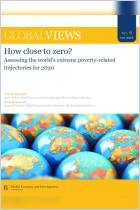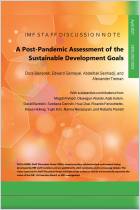Зарегистрируйтесь на getAbstract, чтобы получить доступ к этому краткому изложению.

Зарегистрируйтесь на getAbstract, чтобы получить доступ к этому краткому изложению.
Vincent Chin, Hans-Paul Bürkner, Dwaa Osman, Janmejaya Sinha and Trish Stroman
Governments Should Think Big, Act Fast, and Start Small to Solve Tough Problems
When addressing critical issues such as nutrition access, clean water, and the digital divide, multilateral solutions aren’t the only answer.
Boston Consulting Group, 2021
Что внутри?
When the world’s problems seem intractable, start with small, local, scalable solutions.
Recommendation
Policy makers often want to tackle global problems on a large scale, all at once, but complex problems don’t always require multilateral solutions – at first. Governments and organizations can start small with programs at the local level, and when little wins prove a program’s efficacy, they can scale those programs worldwide. This special report from the Boston Consulting Group discusses low-risk, no-regret actions that can address nutrition deficiency, water shortages and digital access for all.
Summary
About the Authors
Vincent Chin, Hans-Paul Bürkner, Dwaa Osman, Janmejaya Sinha and Trish Stroman are professionals with the Boston Consulting Group.

























Comment on this summary